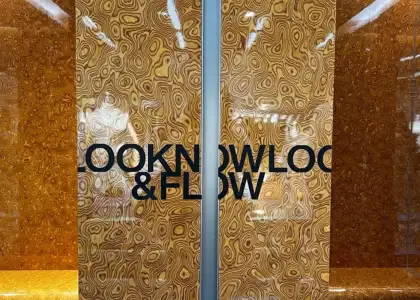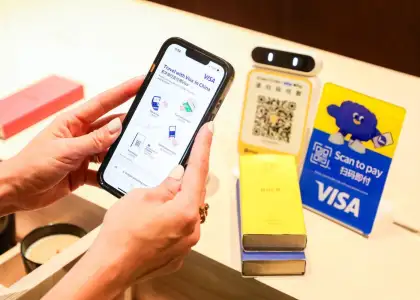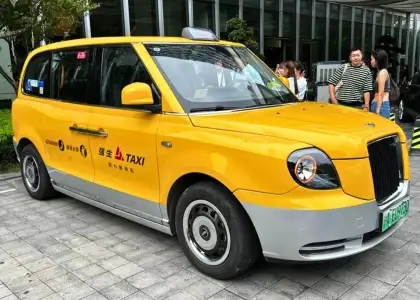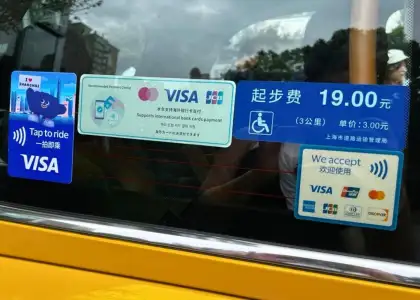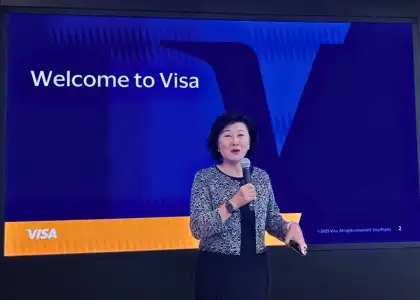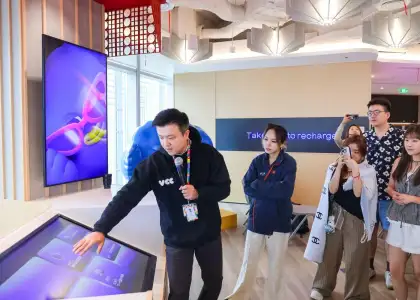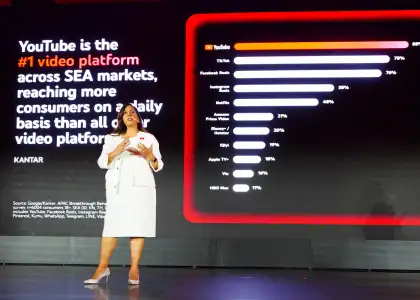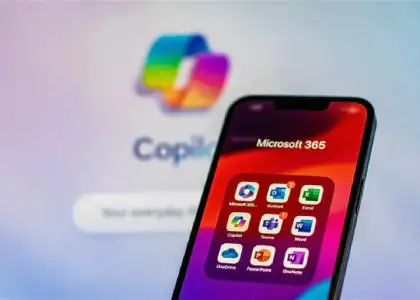Animoca Brands’ Yat Siu on His Vision for Hong Kong’s Web3 World Domination
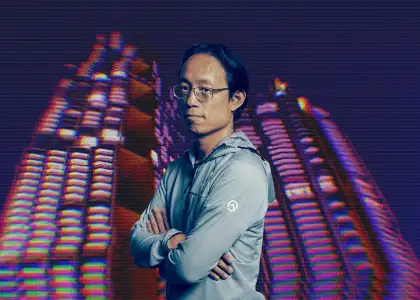
Yat Siu is bullish. The Viennese-born technology entrepreneur and investor is determined to drive accessibility and democratisation online. Co-founding Animoca Brands in 2014, a leading game software and venture capital company based in Hong Kong, Yat has led a global brand in Web3 with a mighty prediction of what may transpire in the industry.
Beginning at Atari Germany in the late 1980s, moving on to building the foundations of Hong Kong’s internet in the Web 1 era of the early 1990s, thriving in the exciting field of game production in the Web 2 age, Yat has always been at the forefront of technology innovation. Since 2018, his explorations in gaming, blockchain, NFTs, and cryptocurrencies have allowed Yat to gain a deep understanding of the manifold opportunities in Web3 that emerged at the end of the last decade.
In June 2023, Yat joined the Hong Kong government’s Task Force on Promoting Web3 Development in an advisory role to supplement the growth of what the tech leader calls a golden opportunity for Hong Kong to take the global lead in Web3.
Yat joined The Beat Asia for an exclusive interview to share his life journey in technology and vision for the future of Web3 in Hong Kong and Asia.

On his youth in the 1980s, gaming and coding in his home country of Austria
I was always big into gaming, since the early days of the first generations of consoles and personal computers. I fondly remember one of the big games in the mid-‘80s was Karateka on the Apple II. In my teens, I had a programmable calculator from Texas Instruments that I played games on and where I learned my first [programming language].
Later, I used an Atari ST computer to build an early version of MIDI software to create music to help me with my music classes. I uploaded it as free shareware to CompuServe, [an] early online service [back] then, and it turned out to be quite popular. Through CompuServe, I connected to people around the world who expressed their appreciation for my work by sending me money through the post - a somewhat surreal experience for me given that I was still in high school and didn’t even have a bank account.
Eventually, having come across my shareware programs, Atari Germany contacted me and said, hey, we like your software, would you like to come and chat with us?
On joining Atari, programming software as a teen and studying computing in the United States
I was just a teenager when I joined Atari Germany as a consultant. It didn’t matter how old you were or what your background was; what mattered was what you knew how to do and that you had the skill to do it.
Without a typical employment agreement, I simply consulted for Atari rather than take full employment. After I finished high school, Atari sent me to the U.S. to receive a proper computer science education, which Austria lacked at the time. I studied at Worcester Polytechnic Institute initially, and then Boston University.
During my studies, Atari went under, and the business unit that I was consulting for was acquired by SGI Webforce, founded by Silicon Graphics, a computer hardware and software producer. I was hired as a trainer at SGI and shipped to Hong Kong.

On revolutionising early internet in the city with HKOnline and Cybercity, Asia's first free web page and email provider
Two things happened when I was in Hong Kong starting around 1995: I received permanent residency because my father is from Hong Kong, so I was immediately able to live and work here; and I noticed that I couldn’t access my email. Internet service providers (ISPs) like America Online and CompuServe from the U.S. were virtually non-existent in Hong Kong. I saw an opportunity.
I decided to set up one of Hong Kong's first internet service providers, called HKOnline. I came to Hong Kong knowing almost no one, with the idea that people in Hong Kong, like people everywhere, needed access to the internet. At first, I was shocked by the total lack of interest. That initial response taught me a few lessons about understanding and creating a market. I persevered, obtaining better traction and deciding to make Hong Kong my home.
I morphed HKOnline into a free email and web hosting service called Hong Kong Cybercity, the very first such provider in all of Asia. The project became quite large in terms of users, but I wasn’t making any money because most of the users were students. To sustain that business without revenue, I took a job at AT&T Solutions.
I worked at AT&T during the day and maintained Hong Kong Cybercity at night. With more than 300,000 users, which was a lot back in the ‘90s, people waited hours to upload content. The demand was evident: people wanted a platform for self-expression, which is probably a universal characteristic in humans.
On his first big break, founding Outblaze, a leading cloud computing business in Asia sold to IBM
In 1998, I created Outblaze, an application service provider that hosted white label email and other communications services. [It] became quite successful as a pioneer in cloud computing. In 2001, while continuing to develop Outblaze’s services business, we also began to explore the gaming industry in Asia and internationally.
When the cloud computing field began to consolidate in the late 2000s, IBM came calling and said they were interested in acquiring my cloud computing business. They didn't want the gaming or entertainment divisions, but specifically the messaging business. We sold the messaging division in 2009.
We had a three-year non-compete clause with IBM after the sale, so we decided to focus on our game development and publishing efforts and looked around for interesting opportunities. I had an iPhone in 2008, but back then there were still no in-app purchases, meaning the commercial viability of the app ecosystem was tiny compared to today. Despite that, the device still gave me some interesting ideas.

On creating one of iPhone’s most successful early apps and venturing into the mobile gaming business
I was a young father at the time and I asked my team to make an application that would help [make] my life easier as a parent. For an entirely selfish reason, I wanted to have a digital version of flashcards to teach my kid words and keep him entertained. So, I thought, why not create an iPhone app for that?
Everyone thought I was crazy, giving a highly sophisticated, thousand-plus-U.S.-dollar device to a toddler who might chew on it, throw up on it, or just damage it. But it turned out that millions of parents had a need for this app, and it became very popular. When we added a paid version, we started making money on the concept of handing your expensive Apple devices to your children for education and entertainment purposes.
Grasping the mobile gaming opportunity, we began launching mobile games under a new brand called Animoca, and some of the games became very successful. We were getting into the top five of the App Store in 2011, but then in 2012 Apple removed hundreds of our apps for no clear reason, almost killing our entire company.
Post-2012, we positioned Animoca to work closely with brands and create games with new AR technologies while focusing on Apple iOS’s nascent mobile rival, Google Android. We grew the company by forming close relationships with brands to help with promotion and marketing. This strategy worked well, so we spun out Animoca into a new public company called Animoca Brands that would focus on this type of business.
On positioning Animoca Brands with a focus on Web3 and gaming
In 2017, Animoca Brands acquired a studio called Fuel Powered, which helped to create CryptoKitties, one of the first mainstream collections of NFTs. This was an important moment that opened our eyes to significant untapped potential.
With the NFTs of CryptoKitties, the most striking thing was that it was finally possible to have true digital ownership. In other words, we could experience in the digital world the effects that we normally expect only from physical property: scarcity, provenance, supply and demand, and, most importantly, property rights and true ownership. That was the amazing opportunity that CryptoKitties popularized when it came out.
Since 2017, we have invested in Axie Infinity, WAX, Decentraland, and hundreds of others. Today we have over 450 portfolio companies, and we operate various businesses of our own, like The Sandbox, Revv Racing, Phantom Galaxies, and most recently, Wreck League, a game associated with the Bored Apes NFTs.
Our minority investment stakes in hundreds of Web3 companies allows us to build a network effect shared across the entire portfolio and even the ecosystem. This is something that Web 2 companies don’t like, because it transfers power away from the operators and to the users, meaning that the big platforms no longer have total control and ownership of the online experience and (critically) users’ data. This paradigm shift towards a freer, more equitable experience is, in my view, the very reason why Web3 companies thrive. With the basis of true digital ownership and control over one’s data, Web3 can grant power to the people.
On Hong Kong’s warm embrace for Web3, blockchain, and metaverse technology
We are pleased Hong Kong has taken this position, approaching Web3 with open arms. I think there is something inherent about Hong Kong that is very natural to Web3 and the idea of digital assets.
With a liberal free market, Hong Kong is inherently capitalist in its mindset. It has all the ingredients necessary to understand and utilize the value of Web3. Web3 [enables] property rights in an online context, and [these] rights are the foundation of capitalism. You can’t have capitalism in a digital paradigm without property rights attached, and Web3 finally solves that problem. Look at the success of The Sandbox and other early metaverse projects to understand how important digital property rights are.
Hong Kong has had several years of problems: civil unrest, protests, COVID-19, and its position between the U.S. and China. To reclaim the throne as a financial capital of Asia, Web3 is a golden opportunity that the territory cannot pass on.

On educating Hong Kong of the great value of the Web3 world
Web3 and digital goods are inherently popular and understood by youth, but not well understood by older generations, because younger generations appreciate the value of a digital life – they are dependent on a digital lifestyle.
One thing Hong Kong needs to do is engage the youth in the opportunities present in the world of Web3. In Asia, this is something that seems to resonate powerfully. Japan’s Prime Minister himself said Web3 represents the future of Japan.
Whilst Hong Kong is dependent on American technology that doesn't necessarily seek or protect its national interest, it does make perfect sense to invest in and support new technology initiatives that support local endeavours that have the local interest in mind. That’s Web3.
On joining Hong Kong's government Task Force on Promoting Web3 Development
I joined the task force in an advisory capacity with various suggestions and recommendations. One of the things I hope to achieve is to develop deeper financial literacy in Hong Kong, because that’s an important basis for success in Web3.
More financial literacy means more transparency and honesty in the system. I hope Hong Kong’s Web3 space will increase opportunities for education and financial literacy democratisation, creating a population ready for Web3 and that understands it better than the previous generations.
The key takeaway for end users, not just in Hong Kong or Asia, but all over the world, is that you should control your own data. Data powers the modern world. Data is one of the most important resources on Earth. Under a Web3 paradigm, data becomes your property under your control, and this ownership serves as the foundation for the creation of entirely new digital societies and economic opportunities.
On his outlook for Web3 progression in Hong Kong in 2023 and beyond
I am very bullish about Web3. More and more people are moving into Web3 and building stuff. I firmly believe that Hong Kong, with its heritage of financial sophistication and relentless innovation, will lead the charge to expand the market for digital assets.
This interview has been edited for length and clarity.
Get the latest curated content with The Beat Asia's newsletters. Sign up now for a weekly dose of the best stories, events, and deals delivered straight to your inbox. Don't miss out! Click here to subscribe.











